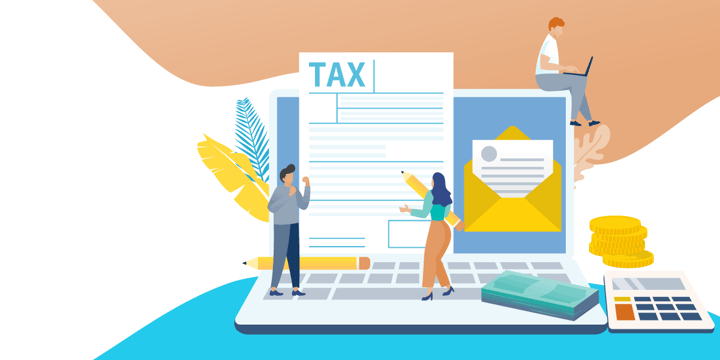Without much fanfare or publicity, in late July, President Trump signed legislation into law called the Taxpayer First Act, which makes changes to Internal Revenue Service (IRS) rules and processes. It is the first substantial reform to the IRS in over two decades. The new law has a significant change in IRS rules that requires all U.S. nonprofits to electronically file their 990 tax returns. The forms will be publicly viewable free of charge in a searchable, machine-readable format.
Nonprofit e-filing of 990s will be mandatory beginning with the 2020 tax year, which means that starting in 2021, tax-exempt organizations will be required to e-file. Currently, about two-thirds of the estimated 1.5 million nonprofits in the United States already e-file their tax returns.

This new e-filing requirement applies to nonprofit organizations of all types. This includes tax on 501(c)(3) organizations filing Form 990 as well as 527(e)(1) political organizations filing a Form 8872. The new law gives the IRS discretion to offer a two-year transition relief for smaller organizations.
When You'll Need to E-File
As mentioned, starting in 2021, all nonprofit organizations will be required to e-file.
- For organizations using the calendar year beginning January 1, 2020, as their fiscal year, e-filings will be due May 15, 2021.
- For fiscal year filers with a tax year beginning after July 2, 2019, e-filing will be due beginning November 15, 2020, and after.
- Because the law was written to take effect the day after it was enacted (July 2, 2019), organizations with a fiscal year starting July 1, 2019 will not be required to e-file until November 2021 for the tax year July 1, 2020, to June 30, 2021.
Examples of Forms to Be E-Filed
Here are some additional details on the new e-filing requirements courtesy of Southern California Grantmakers:
- Private foundations and charitable trusts, regardless of asset size, that file at least 250 returns during a calendar year are also required to file their Form 990-PF information returns electronically.
- Tax-exempt organizations that have assets of $10 million or more, and that file at least 250 returns during a calendar year, must electronically file their Form 990 information returns.
- Organizations with gross receipts less than $200,000 and with total aggregate assets of less than $500,000 at the end of the taxable year can request the two-year transition relief. This transition relief may also extend to organizations filing Form 990-T.
Support for Universal E-Filing
According to the Aspen Institute Program on Philanthropy and Social Innovation, the e-filing requirement for nonprofits is intended to make it easier for researchers and the public (especially donors) to access information on 501(c)(3) organizations. Aspen Institute has advocated for this change since 2008. As part of its Nonprofit Data Project, it has worked to improve the quality, timeliness, accessibility, and efficiency of the nonprofit data collection system.
Supporters of the change include the Bill & Melinda Gates and Charles Stewart Mott foundations, Candid (formerly GuideStar and Foundation Center), the Urban Institute, the Indiana University Lilly Family School of Philanthropy, and the Center for Civil Society Studies at Johns Hopkins University.
The Downside
Despite general support for the change by organizations like those listed above, others have been less positive. One concern is about an undue burden on smaller, more rural organizations headquartered in regions with persistent digital access challenges.
Another concern relates to the role of philanthropy as more private resources are being put to work for the public good. Ensuring the privacy and anonymity of major donors, board members and, in some organizations, staff has been important to the nonprofit sector. For better or worse, digitizing 990s will make at least some of that information more publicly available and accessible.
To stay abreast of conversations at the intersection of privacy, philanthropy, data, and technology, consider following the Stanford University Digital Impact initiative.







